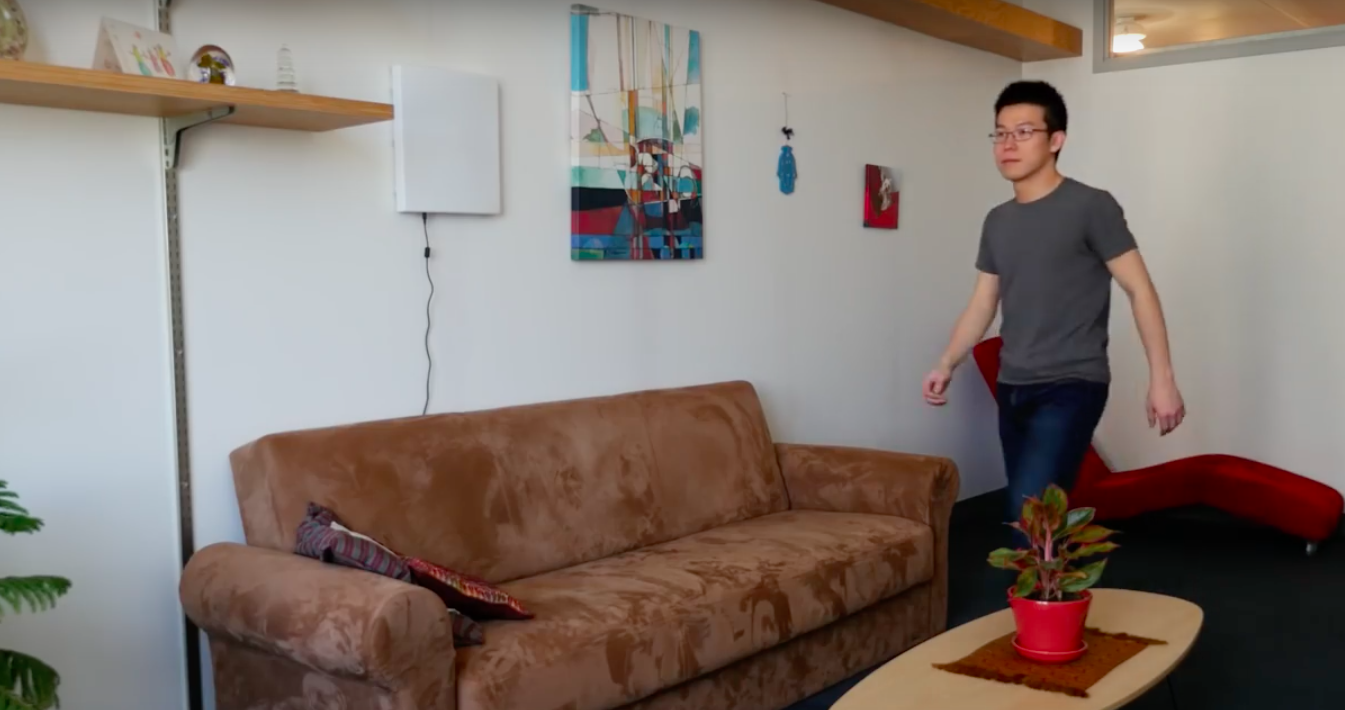MIT created a device for measuring the speed of walking on Wi-Fi signals

It has long been known that blood pressure, respiration, body temperature, and pulse can give a broad picture of a person’s state of health. But recent studies show that another indicator — how fast a person walks — can also be an indicator of health problems: a decrease in cognitive ability and even the presence of certain heart or lung diseases.
Unfortunately, it is difficult to track the walking speed so that the observation is continuous and unobtrusive. A group of researchers led by Professor Dina Katabi in the laboratory of computer science and artificial intelligence of the Massachusetts Institute is working on this problem and believes that the transition to wireless communication will be the best solution.
')
In their work, the team presented a WiGait device that can measure the walking speed of several people at once with an accuracy of 95-99% using wireless signals.
A device the size of a small picture can be placed at home on a wall; its radiation power is only a hundredth of the radiation of an ordinary smartphone. The prototype is based on the previous development of Katabi WiTrack , which analyzes the wireless signals reflected from the bodies of people to measure the range of various changes: from breathing rate to emotional leaps. In addition, WiTrack can be used in the video game industry: the system uses radio signals to track a person through walls and obstacles, accurately determining his three-dimensional location. In perspective, this may change the experience of using the Xbox Kinect gaming consoles of the Xbox or Sensor Bar of the Nintendo Wii family of consoles: the whole house can turn into a virtual world.
Using the home sensor, people will be able to see the trends in walking speed for a long time. So you can understand how to adjust physiotherapy, medication or other aspects of caring for your own health.
WiGait can also determine the step length with an accuracy of 85% to 99%. This will help doctors identify conditions like Parkinson's disease, which are characterized by reduced step length.
Today, walking speed is measured by physiotherapists and clinicians using a stopwatch, FitBit bracelets can only estimate the speed based on the number of steps, and GPS-enabled smartphones are also not accurate and cannot work indoors. The cameras are too intrusive and can control only one room.
Vicon's motion capture systems are the only method, according to researchers, that can compete exactly with WiGait. But it is not widespread enough to be practical for monitoring daily changes in health status.
According to the creators, WiGait measures walking speed with a high degree of detail, without requiring a person to wear a sensor on his arm or in his hands. He does this by analyzing the surrounding wireless signals and their reflections from the human body. The algorithms of the team of scientists can also distinguish walking from other movements, such as washing dishes or brushing your teeth.
Katabi says the device can help pin out a huge amount of important medical information, especially for older people. A change in walking speed can mean that a person is injured or is at high risk of falling. The feedback of the system could even help a person determine whether he should move to another environment, for example, to a house where he will be helped.
WiGait does not take a person to the camera, but only shows a point moving on the screen. In the future, researchers hope to test it on people with impaired walking due to Parkinson's, Alzheimer's, or multiple sclerosis in order to help doctors accurately track the progression of the disease and correct medication.
“The true novelty of this device is that it can display the main indicators of health and behavior without any active user participation, which is especially useful for people with impaired cognitive function,” Dr. Ipsit Vaya, who did not participate in the study . "The gait speed is an indicator of many clinically important conditions that affects the changing nature of sleep, respiratory rate and other important body reactions."
Source: https://habr.com/ru/post/403675/
All Articles